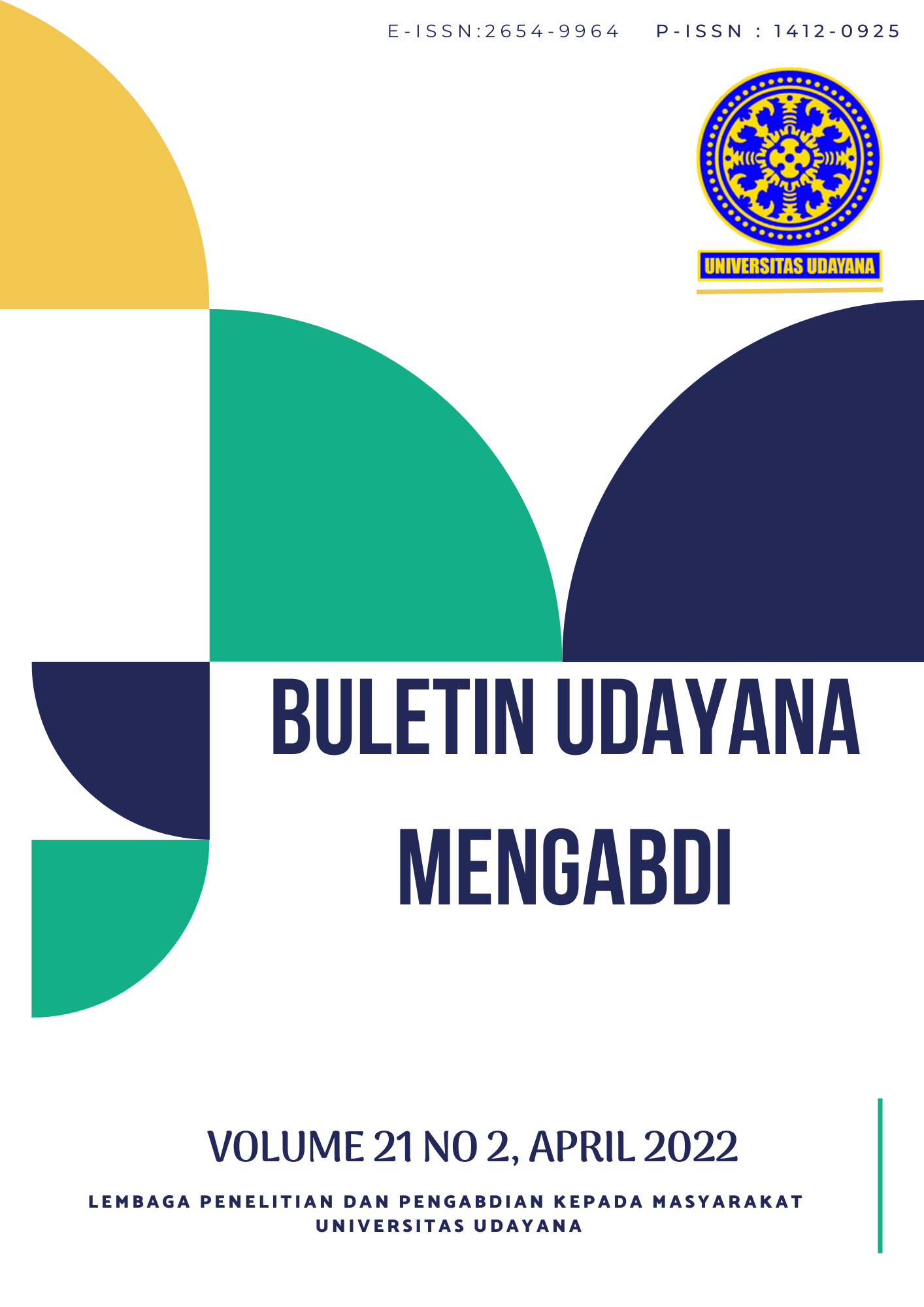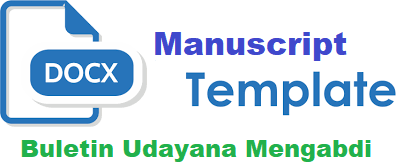PEMANFAATAN LIMBAH JSJ (JERAMI, SEKAM, JANGGEL JAGUNG) SEBAGAI MEDIA TUMBUH JAMUR MERANG GUNA MENCIPTAKAN PELUANG BISNIS DI DESA KARANGKEDAWUNG KABUPATEN JEMBER
Abstract
Karangkedawung Village is one of the villages in Mayang District, Jember Regency, East Java Province. The geographical condition of this village is dominated by rice fields. This causes the majority of the people to make a living as farmers. The community in this village is faced with several problems, namely the middle and lower economic conditions, low levels of education and lack of skills, as well as problems in the agricultural sector in the form of burning agricultural waste. The low knowledge and skills of the community cause there is no knowledge of the negative impacts of burning waste and the absence of utilization of the agricultural waste. The purpose of this community service program is to provide training to the community regarding the use of waste so that it can be used as a planting medium for edible mushrooms that have economic value. The aim of this program is to reduce the community's habit of burning waste and increase the income and skills of the community. The service method carried out is divided into three stages, namely preparation, implementation and assistance. This program was carried out on 15 partner families with 30 mushroom blocks. The benefits generated by this service program were the reduction in the habit of burning agricultural waste by using waste as a mushroom growing medium independently, creating business opportunities, and increasing people's income.
Keywords: Agriculture, waste, edible mushroom, business opportunity
Downloads
References
Hafidawati. 2018. Karakteristik Emisi Black Carbon (BC) dari Pembakaran Terbuka Jerami Padi dan Dampak Terhadap Kualitas Udara Ambien. Econews, 1(2): 72 – 80.
Nurhakim, Y. I. 2018. Budi Daya Jamur Merang. Jakarta: Bhuana Ilmu Populer.
Nurlia, A. M. I. T. Asfar, A. M. I. A. Asfar, M. I. Ridwan, Nurwahyuni dan A. S. Rahayu. 2020. Mix Sekam Padi, Bonggol Jagung dan Tempurung Kelapa Sebagai Pestisida Alami. Sukabumi: CV. Jejak Publisher.
PT. Indocement Tunggal Prakarsa Tbk. 2020. Buku Pertanian Agribisnis Jamur Merang. Sleman: Deepublish.
Retnani, Yuli., I. G. Permana, N. R Kumalasari dan Taryati. 2015. Teknik Membuat Biskuit Pakan Ternak dari Limbah Pertanian. Jakarta: Penebar Swadaya.
Saputra, Wanda. 2014. Budidaya Jamur Merang: Jakarta : PT. Agromedia Pustaka.
Sunarmi, Y. I. dan C. Saparinto. 2018. Usaha 4 Jenis Jamur Skala Rumah Tangga. Jakarta: PT. Penebar Swadaya.
Syaiful, F. L., U. G. S. Dinata dan Y. Hidayatullah. 2018. Pemberdayaan Masyarakat Melalui Pemanfaatan Limbah Sekam Padi Sebagai Bahan Bakar Kompor Sekam Yang Ramah Lingkungan Di Kinali, Pasaman Barat. Buletin Ilmiah Nagari Membangun, 1(3), 62 – 69.
Yuliawati, Tetty. 2016. Pasti Untung dari Budi daya Jamur. Jakarta Selatan: PT. AgromediaPustaka.

This work is licensed under a Creative Commons Attribution-ShareAlike 4.0 International License.

This work is licensed under a Creative Commons Attribution-ShareAlike 4.0 International License.




.png)


1.png) GARUDA - GARBA RUJUKAN DIGITAL
GARUDA - GARBA RUJUKAN DIGITAL



